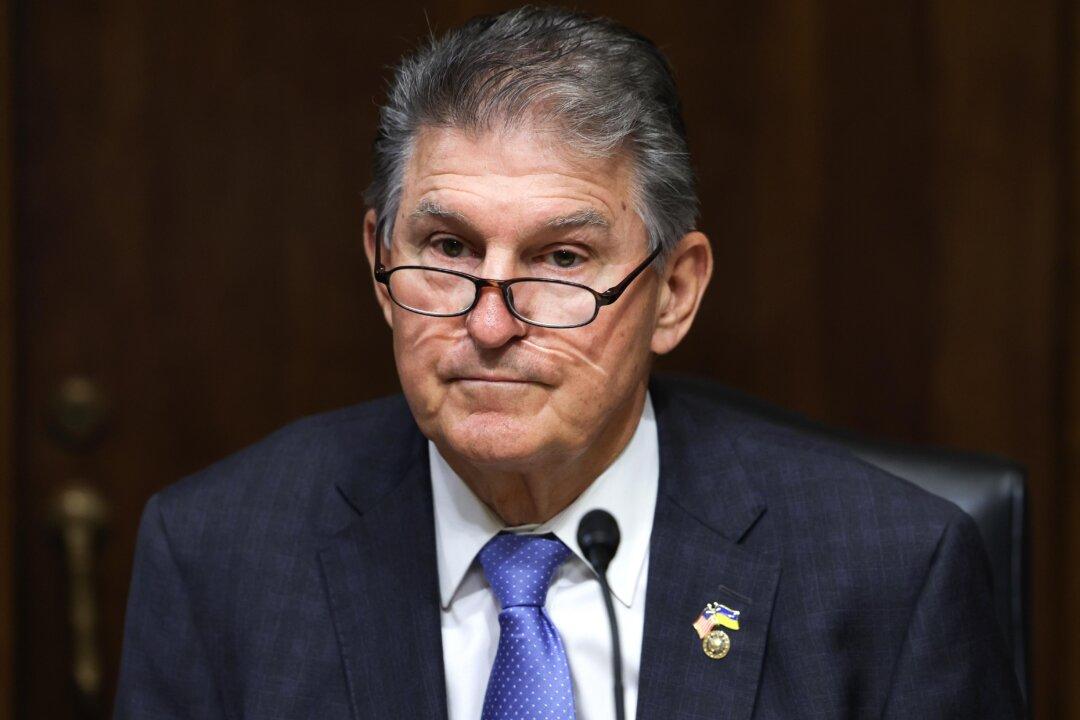Sen. Joe Manchin (D-W. Va.), the embattled senior senator from the Mountain State, says he’s “thinking seriously” about leaving the Democratic Party as he mulls his political future.
Mr. Manchin, the former governor of West Virginia, has occupied his seat in the Senate since 2010, when he was elected to fill the vacancy left by the death of Sen. Robert Byrd (D-W. Va.). Even as his state shifted further and further into the arms of the Republican Party, Mr. Manchin held onto his seat by presenting himself as a “conservative Democrat” and a moderate voice among his party as it moved further to the left.





